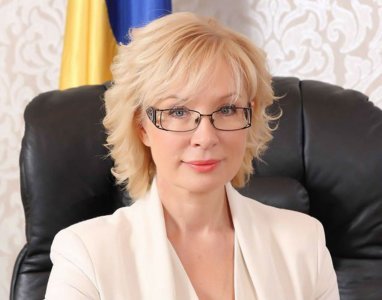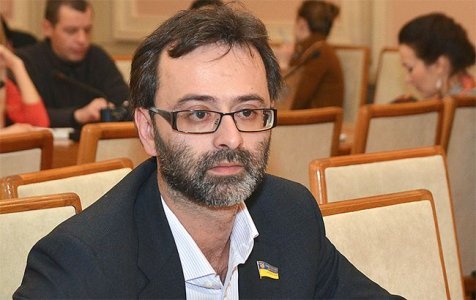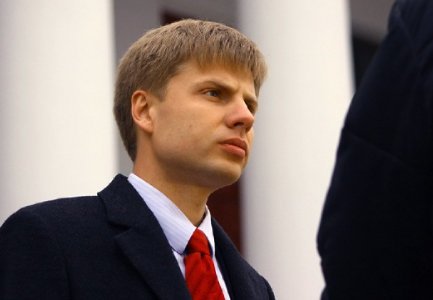People living in Crimea annexed by Russia didn’t participate in the last parliamentary elections, with the exception of internally displaced persons and those Crimeans who came to the mainland with a special purpose to fulfil their civic duty. However, people’s deputies of Ukraine are not in a hurry to fulfil their duty to voters from Crimea and others. This also applies to the deputies, whose life and political biography is closely connected with Crimea as well as those, who have little to do with the peninsula, but use the Crimean brand for political PR.
Crimean deputies and the occupied peninsula
As a result of parliamentary elections in 2014, five Crimean politicians, who were, first of all, to defend the interests of the temporarily occupied peninsula and its citizens, got into the Verkhovna Rada from party lists. However, the reality is that people’s deputies from Crimea do not care much about Crimean issues.
Four people from five people’s deputies from Crimea represent the Petro Poroshenko Bloc’s faction – the leader of the Crimean Tatar People Mustafa Dzhemilev, the head of the Mejlis of the Crimean Tatar People Refat Chubarov, the former head of the Crimean government (in 1998-2001 and in 2002-2005) Sergey Kunitsyn, and a young politician from Sevastopol Dmitriy Belotserkovets. The only deputy from the People’s Front – the ex-Minister of Economy and Finance in the Crimean government (1998-2000) Lyudmila Denisova.
Over two years of the work of the 8th Verkhovna Rada of Ukraine, these parliamentarians prepared more than 300 legislative initiatives, among which only 13 (4%) were devoted to the Crimean topic. The Parliament supported only 5 initiatives proposed by the Crimean people’s deputies and four of them were related to the parliamentary appeals to the international community on human rights violations, repressions against Crimean Tatars and the ban of the Mejlis.
 The draft law on strengthening the protection of internally displaced persons (#1496) aimed at addressing the employment issues and the assistance to unemployed internally displaced persons that was proposed by Lyudmila Denisova is among the adopted initiatives.
The draft law on strengthening the protection of internally displaced persons (#1496) aimed at addressing the employment issues and the assistance to unemployed internally displaced persons that was proposed by Lyudmila Denisova is among the adopted initiatives.
Mustafa Dzhemilev and Refat Chubarov have initiated the adoption of draft laws prohibiting trade with the temporarily occupied territory of the Autonomous Republic of Crimea at different times. For example, in June of 2015, Mustafa Dzhemilev proposed to introduce the penal sanctions for delivering goods to Crimea with the help of the draft law #2100a: violators would face a term of imprisonment from 3 to 7 years and persons using their official position – up to 12 years of imprisonment with confiscation of the goods. Refat Chubarov proposed a less restrictive version of the prohibition of supplying goods to Crimea (#3593) in the beginning of December of 2015. The draft law provided for the complete prohibition of the cargo transportation in Crimea while allowing to import only a limited list of food products to the peninsula. Only personal belongings were allowed to transport from Crimea. In spite of the fact that this draft law has not been adopted by the Parliament, its main provisions were reflected in the Resolution of the Cabinet of Ministers #1035 that sharply limited the possibility of Crimeans to leave (and, in fact, the possibility of being evacuated) the occupied peninsula with their property.
 Mustafa Dzhemilev also proposed to introduce free legal support for internally displaced persons. However, this initiative just like the initiative of Sergey Kunitsyn on reducing the tax on income of internally displaced persons, who rent an accommodation, was not supported by the Verkhovna Rada because of the extra burden on the budget.
Mustafa Dzhemilev also proposed to introduce free legal support for internally displaced persons. However, this initiative just like the initiative of Sergey Kunitsyn on reducing the tax on income of internally displaced persons, who rent an accommodation, was not supported by the Verkhovna Rada because of the extra burden on the budget.
There is a similar situation with inquiries of deputies: the deputies whose political career was closely linked to Crimea have filed only 10 inquiries for two years – no one of them was related to Crimea or Crimeans.
Group “Krym” in the struggle for Crimea
In December of 2014, the inter-faction group “Krym”, which was aimed to defend the interests of Crimeans according to its founders, was established in the Verkhovna Rada of Ukraine. Having spoken about the group’s tasks, its initiator Aleksey Honcharenko defined two main objectives: the return of Crimean issues on the agenda of the Ukrainian policy as well as solving the problems the people living on the peninsula and IDPs are facing with. “We would like to achieve these objectives by using different mechanisms. Firstly, this is the legislative activity, and secondly, this is the control over the executive branch, in particular, over the Cabinet of Ministers,” he said. However, they failed to turn these objectives into reality.
At the beginning of 2016, the group consisted of 11 people’s deputies with just one Crimean politician – Mustafa Dzhemilev. A colonel Yuliy Mamchur who has done the military service in Crimea at the time of annexation and Irina Friz who has been living in Crimea until 2001 are nominally related to the Crimean policy that is confirmed by a lack of their interest in solving Crimean problems. The people’s deputies from the Petro Poroshenko Bloc’s faction have the vast majority among the group’s members and only one of the most active lobbyists of the Crimean topic Georgiy Logvinsky represents the People’s Front.
During two years of the group’s work, its members were more or less consolidated only once when they proposed the Parliament to adopt the appeal to international institutions regarding human rights violations in the Autonomous Republic of Crimea in February of 2015. Five people’s deputies from the group (Aleksey Honcharenko, Irina Friz, Mustafa Nayem, Elena Mutuzko and Georgiy Logvinsky) and the Crimean politician Sergey Kunitsyn who is not the group’s member proposed this initiative all at once.
 Later, the commitment to the Crimean topic is reflected only in activities of the head of the Sub-Committee on international legal issues and internally displaced persons Georgiy Logvinsky: almost a half (20) of 48 legislative initiatives proposed by him are related to Crimea to one extent or another. They include already adopted amendments to the Law on internally displaced persons, which made an internally displaced person’s (IDP) certificate a perpetual document, and the initiative to have a Day of Remembrance of the deportation of the Crimean Tatar People on the national level. The people’s deputy also proposed to introduce a compensation for loss of property in occupied territories for IDPs, but the Verkhovna Rada couldn’t do more than approving the draft law as a basis in the spring of 2015.
Later, the commitment to the Crimean topic is reflected only in activities of the head of the Sub-Committee on international legal issues and internally displaced persons Georgiy Logvinsky: almost a half (20) of 48 legislative initiatives proposed by him are related to Crimea to one extent or another. They include already adopted amendments to the Law on internally displaced persons, which made an internally displaced person’s (IDP) certificate a perpetual document, and the initiative to have a Day of Remembrance of the deportation of the Crimean Tatar People on the national level. The people’s deputy also proposed to introduce a compensation for loss of property in occupied territories for IDPs, but the Verkhovna Rada couldn’t do more than approving the draft law as a basis in the spring of 2015.
One of the latest legislative initiatives of Logvinsky was the draft law “On temporarily occupied territories of Ukraine” (#3593-d) developed in collaboration with Oksana Syroid, Semen Semenchenko, Egor Sobolev and others. This document repeats the initiatives, which have been previously proposed by Chubarov and significantly restricted the right of people living in occupied territories to exit, in some articles. In addition, the rights of Ukrainian citizens living in these territories are restricted in terms of social security and pensions, imposing fines and penalties on loans, and others.
 The initiator of the inter-faction group “Krym”, active fighter against the occupation in the Ukrainian media space Aleksey Honcharenko was much less active when it comes to Crimean issues. The former head of the Odessa regional council has spoken in the Verkhovna Rada (at the parliamentary hearings on the Strategy of the reintegration of Crimea) a couple of times, filed one deputy’s inquiry (regarding the State Service on Crimean affairs) and presented five legislative initiatives, including two initiatives related to much-loved by people’s deputies appeals to the international community, over two years of work in the Parliament.
The initiator of the inter-faction group “Krym”, active fighter against the occupation in the Ukrainian media space Aleksey Honcharenko was much less active when it comes to Crimean issues. The former head of the Odessa regional council has spoken in the Verkhovna Rada (at the parliamentary hearings on the Strategy of the reintegration of Crimea) a couple of times, filed one deputy’s inquiry (regarding the State Service on Crimean affairs) and presented five legislative initiatives, including two initiatives related to much-loved by people’s deputies appeals to the international community, over two years of work in the Parliament.
The adopted by the Verkhovna Rada law on returning historical names to Crimean settlements is among documents initiated by the parliamentarian. However, implementation of this law was postponed until the de-occupation of the peninsula.
Mustafa Nayem takes the third position in terms of his activity within the group “Krym”. He has three legislative initiatives, including two appeals to the international structures and the draft law that protects the rights of universities displaced from occupied territories while keeping their status of national universities and previously acquired licenses. Another member of the inter-faction group – the Vice-Rector of the Kherson State University Aleksandr Spivakovsky, for whom this is the first and still the only one initiative related to Crimea, is among the co-authors of this draft law.
Irina Friz, who came to the Parliament from the Administration of the President, had two deputy’s inquiries on Crimean issues during two years of her work in the Verkhovna Rada: regarding the conduct of searches in the premises of the ATR TV-channel and on verification of facts about poor living conditions of the Ukrainian military relocated to the mainland from the peninsula after the annexation.
Other people’s deputies of the inter-faction group “Krym” – Sergey Khlan, Dmitry Golubov and Elena Matuzko – as well as Andrey Gordeev who was appointed to govern the Kherson region in the spring of 2016 – have never showed their interest in problems of the occupied peninsula and Crimeans over two years.
Thus, the overall result of the work of deputies of the inter-faction group “Krym” is: 14 statements on Crimean issues in the Verkhovna Rada, 3 deputy’s inquiries and 25 legislative initiatives, most of which were drafted by Georgiy Logvinsky.
Legislative initiatives, deputy’s inquiries and statements on Crimean issues in the Verkhovna Rada

However, this is not such a bad result as it may seem at first glance. If you compare the work of the people’s deputies of this group with the activity of deputies from Crimea, the result will clearly be in the disfavour of the Crimean politicians. For example, the Kiev lawyer Georgiy Logvinsky is keeping ahead of Sergey Kunitsyn and Lyudmila Denisova, Refat Chubarov, Mustafa Dzhemilev in 10, 5 and 4 times correspondingly in terms of legislative initiatives related to Crimea and Crimeans that he proposed.
In general, Crimean problems are poorly and fragmentarily represented in the work of those people’s deputies of Ukraine, who would have to deal with these issues in the first place because of their close links with Crimea or as a result of their conscious choice of the deputy group. And this can only point to one thing: the main legislative body doesn’t understand what to do with Crimea and Crimeans either in the long term or in the near future. Therefore, maximum activity that some people’s deputies can perform – to promote draft laws, which will simplify the life of internally displaced persons on the mainland just a little bit. In other cases, Crimea is just a good method of political PR for people’s representatives and nothing more.
Elena Sergeyeva
Crimean political analyst










